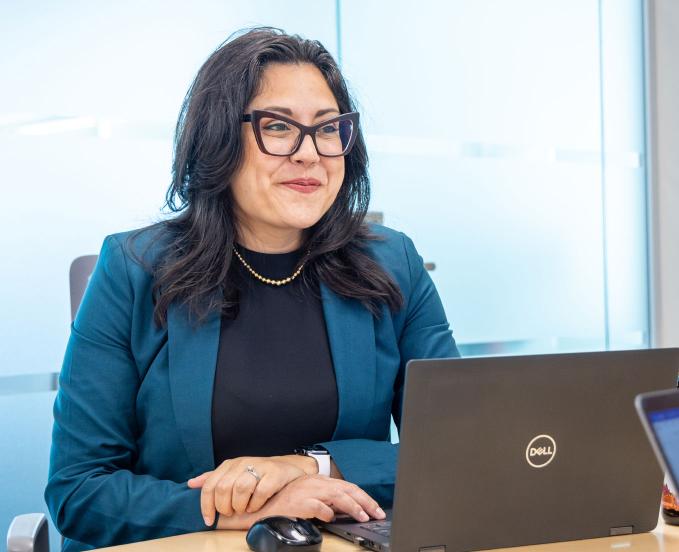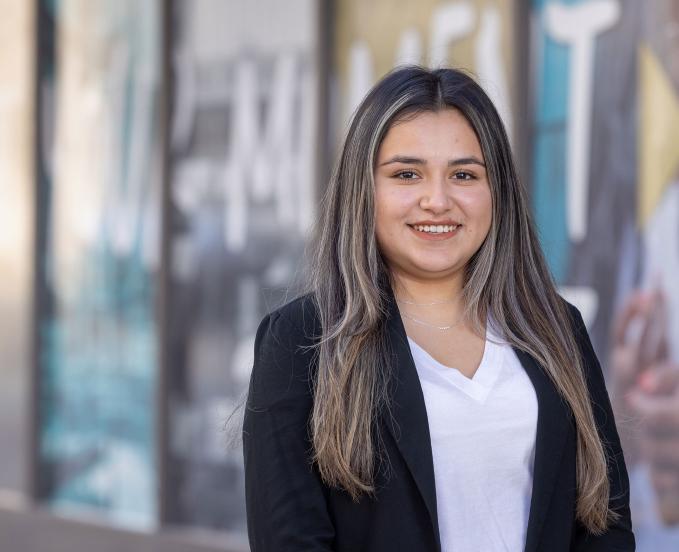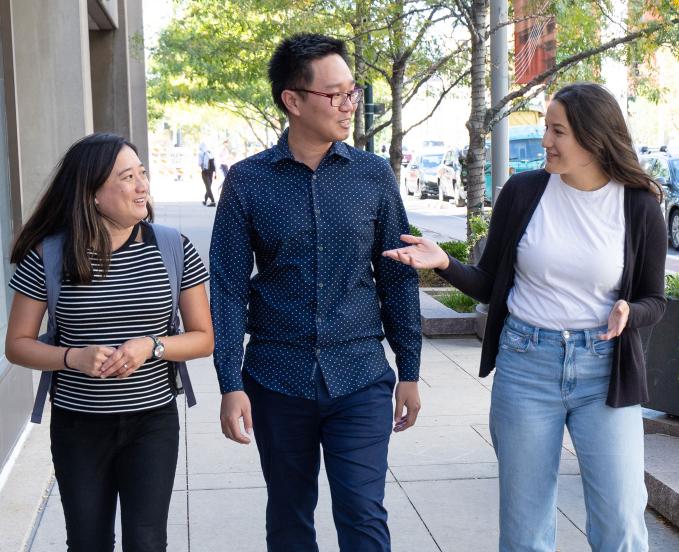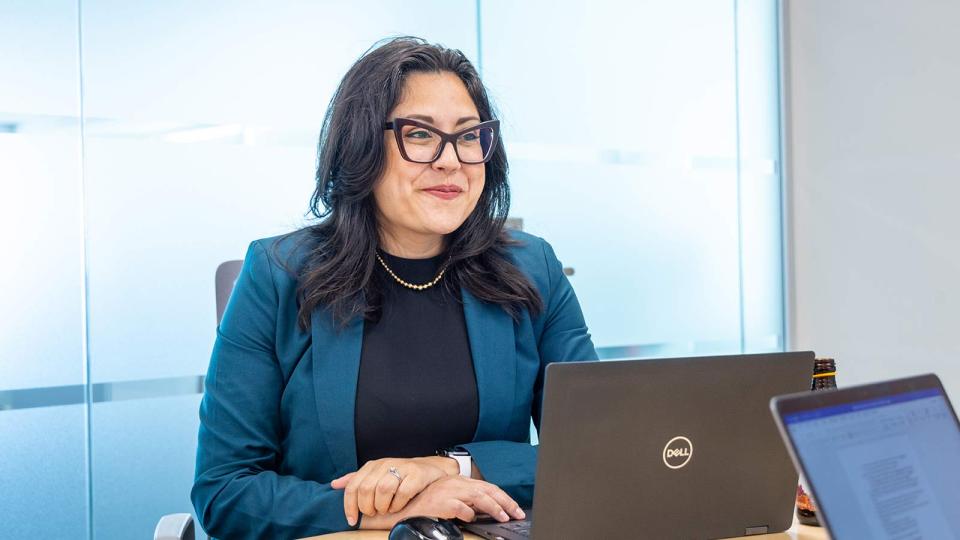
Doctor of Education (EdD) in Leadership for Educational Equity
Drive systemic change and champion equity in higher education through CU Denver’s EdD program, designed for transformative leaders.
The online EdD in Leadership for Educational Equity with a concentration in Higher Education equips leaders to advance equity, access, and social justice in colleges and universities.
- Cohort-based program designed for working professionals.
- Delivered through a combination of eight-week online courses and two on-campus intensive sessions per year.
- Features executive coaching for one-year post-graduation to support leadership success.
Key Topics of Study
- Leadership and governance
- Power, privilege, and social equity
- Strategic enrollment management
- Finance and resource allocation
- Predictive analytics
Graduates of the program are prepared to lead institutional change and policy development at colleges and universities, with a focus on fostering educational equity.
-
Degree LevelDoctoral
-
School & CollegeSchool of Education & Human Development
-
Application Deadline(s)December 16, 2025
-
Total Credit Hours54
-
Class TypeOnline with limited on-campus intensives
-
Time Commitment3 years (cohort-based)
-
Start Term(s)Fall, Spring, Summer
- Fill out form
- We'll be in touch soon
- Get ready to meet your moment
Program Overview
This doctoral program provides relevant opportunities for working professionals to engage in research projects with education and community organizations that broaden their career horizons.
Most EdD students work full-time. New EdD cohorts start each summer. Students complete coursework in two or four years followed by the time required to complete the Doctoral Research Project. During the Doctoral Research Project, you will engage with faculty and district, organization, and community partners on identified problems of practice and policy.

Students select a concentration area based on their interests and aspirations.
Tuition Breakdown
| Resident | Non-Resident |
|---|---|
| $464* per credit | $557* per credit |
*See Graduate Student Tuition and Fees page for graduate tuition disclaimer.
Example Courses
The EdD program requires 54 credit hours, covering key topics in higher education leadership.
Prereq: admission to the doctoral program.
Power and Privilege: The Social Construction of Difference (EDFN 7410)
Explores culture, diversity, and the impact of power and privilege, fostering a philosophy of social justice and equity in individual and institutional interactions.
Leadership in Education (EDUC 7100)
Covers administrative science, leadership models, and philosophies while developing doctoral-level analysis, self-awareness as a leader, and application of leadership practices.
Organizational Performance in Educational Contexts (EDUC 7230)
Explores organizational behavior, learning, and performance in education, focusing on factors that influence outcomes and techniques to assess and improve future performance.
Three Concentrations

Executive Leadership Concentration
Are you a leader in a school, a district, a nonprofit, or a community organization? This concentration prepares those interested in innovation to develop the fundamental skills to inspire and lead. You will:
1. Learn to lead personnel in strategic planning and budgeting processes
2. Understand evaluation and accountability systems and oversee professional development
3. Become data savvy for strategic planning and decision-making, and more

Higher Education Leadership Concentration
Enables and supports current leaders in higher education to continue their work while completing their doctoral degrees. Students in this concentration have a strong passion for educational access, equity, and social justice in higher education, and want to be empowered with tools for positive change to impact student success. Our graduates become effective leaders who are passionate about educational access, equity, and social justice in diverse settings in colleges and universities worldwide.

Justice, Equity, and Diverse Identities (JEDI) Concentration
Focus on education for justice, equity, and diverse identities (e.g., Latiné, Black, AANAPI, LGBTQIA+, and dis/ability) while pursuing research of interest that is adjacent to or within one of these areas. Students delve into the idea of educators as intellectual activists facilitating liberation and are equipped with a critical lens to problematize systemic issues. The program prepares educational leaders who:
1. Value educational excellence and social justice
2. Seek to lead change against educational inequities in underserved schools and communities
3. Value complexities and unique opportunities of diverse communities
Note: The application for this concentration requires an interview and two writing samples.
Career Outlook
What is the projected salary of an individual working in leadership for educational equity?
According to the U.S. Bureau of Labor Statistics, postsecondary education administrators earned an annual median salary of $102,610 in 2023.
What can I do with a doctor of education in leadership for educational equity?
Graduates are prepared for impactful roles such as postsecondary education administrators, instructional coordinator, K-12 administrator, college professor, and more.

Admission Requirements
Apply by December 16. The program has the following application requirements: $50 application fee for domestic applicants; $75 fee for international applicants.
- Master's degree from a regionally accredited institution.
- Written Statement of Purpose
Instructions vary by concentration area, including the following:
- A brief summary of your educational and/or leadership experiences, including your values related to leadership and equity, and experience working with diverse communities.
- A summary of your current professional role and responsibilities and how you use research and evidence to inform planning and decision making.
- Your purpose in pursuing the EdD, intentions for applying the skills and knowledge gained from the EdD degree, and your future career goals.
- Resume/CV
- Three letters of recommendation from individuals who can best speak to your leadership, professional accomplishments, academic skills, and career goals (two professional and one community-based, if possible).
- Official transcripts from all post-secondary institutions attended.
- After the initial review of application materials, faculty will contact eligible applicants to schedule individual interviews.

Get Personalized Support for Your Application
When you’re ready to apply to the Doctor of Education program, our CU Denver Enrollment Team will help walk you through the entire process, from gathering required materials and submitting your application to checking your admission status and enrolling in CU Denver. After you submit your completed application and required materials, you will be able to check your admission status online. You’ll receive a final admission decision by email within two to three weeks of completing your application.
Testimonial

Top-Ranked School

One of our signature strengths is a focus on preparing educational leaders to support equity, diversity, and inclusion efforts.
The School of Education & Human Development is consistently ranked as one of the top schools of education in the country. Our EdD program is nationally known for its rigor and influence. We provide individual supervision and mentorship that prepares you to be research savvy, problem-solve, innovate, and make important contributions in your field of study.
RSVP for an information session hosted by a doctoral faculty member. Questions about the application? Please reach out to our Office of Recruitment and Outreach at education@ucdenver.edu or call 303.315.6300.
Experience flexible, career-focused programs with CU Denver’s renowned quality—100% online—taught by expert faculty in engaging courses within a supportive community, all at an affordable tuition with financial aid and scholarships available.

Flexible, career-focused programs with the same CU Denver quality—100% online.

Expert faculty, engaging courses, and a supportive online community.

Affordable tuition with financial aid and scholarships for online students.

Take The Next Step
Ready to lead in higher education? Take the first step toward earning your online degree by filling out the form above for more information or calling us at 303-860-5604.




